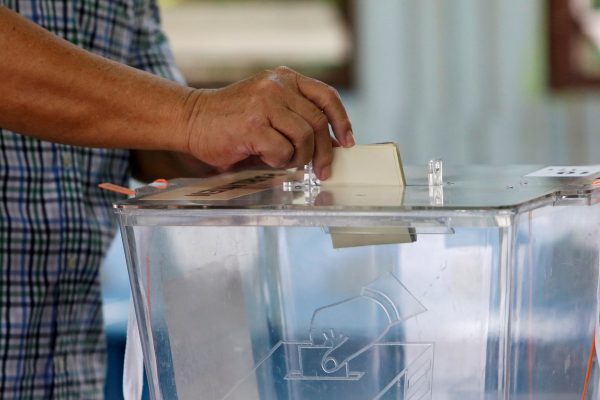Wee Jeck Seng from the Barisan Nasional (BN) coalition member party the Malaysian Chinese Association (MCA), won the seat by a thumping majority. He received 64.6 per cent of the vote and a 34.3 per cent majority against Karmaine Sardini of the Parti Pribumi Bersatu Malaysia (Bersatu). While BN’s victory was expected, the scale of the win came as a surprise to all.
Most observers have concluded that the Tanjung Piai by-election result is a ringing endorsement of the alliance between UMNO and Parti Islam Se Malaysia (PAS). But this is not quite true. For decades, PAS has been weak in Johor where the PAS candidate for Tanjung Piai received only 6.6 per cent of the vote, making PAS’s contribution to BN’s vote share in the by-election barely more than 4 per cent. Johor continues to be an UMNO stronghold and the victory came down to the formidability of UMNO’s electoral machinery.
The Tanjung Piai by-election also highlights an important shift among Chinese voters. It became clear after the 2018 election that Chinese voters had abandoned BN, with roughly 95 per cent voting for PH at the national level. Analysis of 2018 voting data in two polling districts where Chinese account for well over 80 per cent of the residents is revealing. In both areas, PH received 55 per cent and 75 per cent of the vote. Recent survey data suggests that up to 36 per cent of Chinese voters supported the MCA.
This voting anomaly is important because it shows that Chinese residents in Tanjung Piai were driven by factors other than the national wave of resentment against Najib Razak in 2018. It shows that BN had a relatively sizeable base of Chinese support going into the by-election. Rather than having to rebuild entirely it could push to split the Chinese vote with PH.
UMNO President and BN Chairman Ahmad Zahid Hamidi attempted to do so by fielding Wee because of the credibility he has accumulated in his constituency work as the member of parliament for Tanjung Piai for the past 10 years.
BN’s machinery also took PH to task for having struggled to implement policies in its manifesto. Using the slogan, apa mahu lagi tipu (what else do you want to lie about), BN successfully exploited pre-existing frustrations against PH for having reneged on promises it had made in 2018. The perceived inadequacies of the Democratic Action Party (DAP) to address issues of concern for Chinese have also contributed to PH’s performance among Chinese voters.
PH’s vote share in Chinese majority areas plummeted to between 27 per cent and 38 per cent in the by-election — with BN receiving the lion’s share of their support — despite PH attempts to convince Chinese voters that the UMNO–PAS alliance would be to their detriment. These attempts achieved little in deterring voters from BN given the strong resentment against PH. Even Parti Gerakan Rakyat Malaysia (Gerakan) — a former BN coalition member party — appears to have received a small chunk of Chinese votes.
The fact that Gerakan candidate Wendy Subramaniam’s campaign focused almost exclusively on Chinese voters implies that the overwhelming majority of her supporters are from that ethnic community. Considering that Chinese amount to roughly 42 per cent of voters in Tanjung Piai, this would suggest that Gerakan received roughly 10 per cent of the votes from the Chinese community.
The by-election results offer important lessons for both PH and BN. It seems likely that, post-Mahathir, Bersatu will struggle to demonstrate its relevance. Mahathir’s strategy to strengthen Bersatu has entailed co-opting UMNO parliamentarians and leaders who may be increasingly unwilling to jump ship. The result also suggests that Bersatu does not have a wide base of credible members it can promote as candidates. This is now the second by-election in which Bersatu fielded an unremarkable candidate.
BN leaders who were sceptical of the UMNO–PAS alliance may see the by-election result as a net positive because it did not cause a loss of non-Muslim voters. But it is far from guaranteed that BN will be able to regain Chinese support to the same degree in other seats. BN may bank on the gradual emergence of third parties like Gerakan to splinter the Chinese vote moving forward.
With the Sarawak state election due by September 2021, BN will likely use the Tanjung Piai outcome and its recent by-election successes to propose an electoral pact with Gabungan Parti Sarawak (GPS). This will allow BN to lend support to GPS and at some point, to formalise an alliance with GPS in federal politics.
Mohamed Nawab Mohamed Osman is Assistant Professor at Nanyang Technological University (NTU), Singapore, and a Fulbright Visiting Fellow at the University of California, Berkeley. He is co-editor with Edmund Terence Gomez of Malaysia’s 14th General Election and UMNO’s Fall: Intra-Elite Feuding in the Pursuit of Power (Routledge, 2019).
Prashant Waikar is a Senior Analyst with the Malaysia Programme at the S. Rajaratnam School of International Studies (RSIS), NTU.

